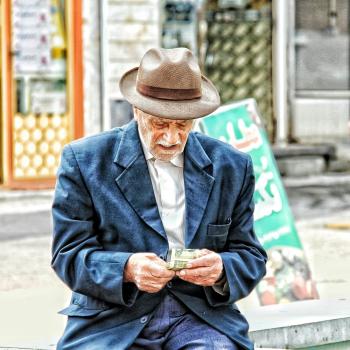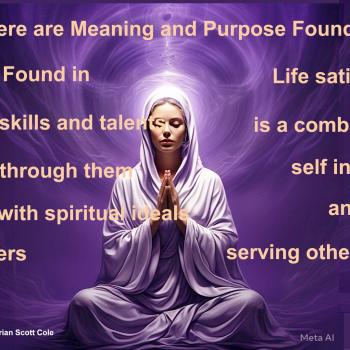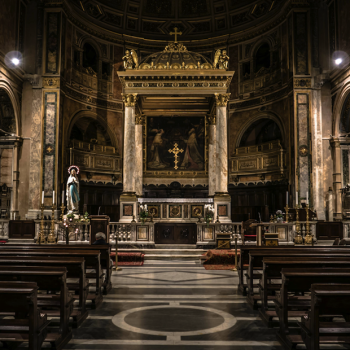 By Mya Om
By Mya Om
When I consider the future of Paganism, Wicca, and the Craft in general, I see things moving forward in a way that honors the past and embraces the future. As a Wiccan by faith and inclination, I place a great deal of emphasis on tradition and practicality; one of the first things the circle I belong to teaches our initiates is why we do things. In my own practice, and in my writing I focus on how to do things. Both of those concepts are equally important and our sphere of knowledge would be incomplete if either one were missing.
Still, I believe that the older generation puts too much emphasis on how our ancestors did things, on the rites and beliefs of the past that were destroyed by the advent of Christianity and other monotheistic traditions which supplanted the belief in the Goddess and forced her underground. (See Sylvia Brinton Perera's Descent to the Goddess: A Way of Initation for Women.) As a historian by training, I understand the value of creating a common narrative of shared experiences, and our elders have done that. It is up to the new generation, myself included, to add our own brush strokes to the tapestry of Paganism. While it is necessary to understand the history of the tradition, and to know the foundation of our journey and belief structure, it is equally important to not get caught up in the past.
In 2003, Ethan Watters published a book entitled Urban Tribes, which, although not a pagan book per se, describes an emerging generation of people who have united together in a rotating network of friends and acquaintances that performs many of the same functions thought to belong within the sphere of the traditional family. He described a tribe created by ties of comradeship, common beliefs, and shared experiences -- instead of by ties of blood and obligation. A tribe created by choice rather than by necessity.
The dictionary defines "tribe" as any aggregate of people united by ties of descent from a common ancestor, community of customs and traditions, adherence to the same leaders, etc. It never ceases to amaze me that when people think of tribes, they are almost inevitably thinking of some prehistoric, nomadic collection of people who existed in some type of utopian splendor before the advent of modern society. When they think "tribe" they think hunter, gatherer, and perhaps somewhere in the dark recesses of their minds, they think savage, uncivilized, and authentically pagan people. In so limiting the definition of tribe, they are missing a new trend. People, most of them in their 20s and 30s, are redefining what it means to belong, and in so doing they are forcing us to confront our preconceived notions of self, family, and relationships in new and exciting ways.
Many of us within the Pagan Community have stories of tumultuous relationships with our blood relatives. I could recite to you the song and verse of my own journey, and you will likely find that it is not much different from the story many of us tell. In my quest for understanding and enlightenment I have broken ties with my traditional family structure, but in doing so I have found something new. I have found community -- a tribe of people connected by common experiences, and a shared quest to experience the sacred in all its earthly forms.
In looking at the Pagan Community at large through the lens of Mr. Watter's text I see something new, startling, and wonderful -- I see a tribe. A collection of people connected through choice, instead of obligation, whose ties are based on love, trust, and respect, instead of blood, duty, and history. This is the direction my generation is taking the Pagan path. We are moving together, taking from the past what we need to move forward. We are recreating our value structures and our ideas about community, acceptance, tolerance, and family.
Many of us, in being rejected by the traditional structures that were supposed to accept and love us unconditionally, have learned the value of "perfect love and perfect trust." To us this concept is an essential part of the tapestry. When I walk into a circle and I am surrounded by my fellow supplicants, I know that regardless of the individual back stories we are all present in that moment for the same goal. We are all adding our brushstrokes to the tapestry; we are mixing the past with the present and the future. What we build, we create for those who walk the path beside or behind us.




